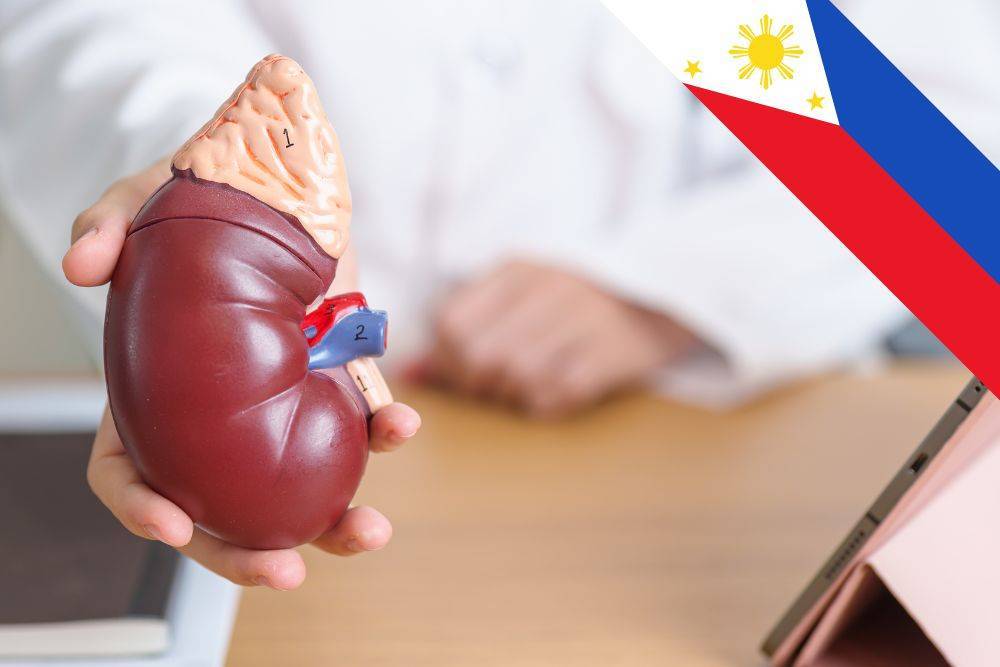June marks National Kidney Month in the Philippines. This month is dedicated to raising awareness about kidney health and the impact kidney damage can have on other parts of the body.
As part of National Kidney Month, Eladio Miguel M. Peñaranda Jr., MD, Chief of the section of Nephrology of Makati Medical Center, emphasises two important bodily connections: kidney function, bone health, and cardiovascular health. Understanding these links is essential for managing and preventing chronic kidney disease (CKD) complications.
The Hidden Challenge of Chronic Kidney Disease
Chronic kidney disease often progresses unnoticed, with many people unaware of their condition until it reaches a severe stage. The kidneys are vital for filtering waste and excess fluids from the blood, regulating blood pressure, balancing electrolytes, and producing hormones necessary for bone health. When the kidneys are damaged, their ability to perform these functions diminishes, leading to numerous health problems.
Effects on Bone Health
One of the lesser-known impacts of kidney damage is its effect on bone health. The kidneys help maintain the balance of calcium and phosphorus in the blood, which is crucial for strong and healthy bones. When kidney function declines, this balance is disrupted, causing a condition known as mineral and bone disorder (MBD). MBD can make bones weak and brittle, increasing the risk of fractures.
The kidneys produce an active form of vitamin D, essential for calcium absorption from the diet. In CKD, the production of active vitamin D decreases, leading to lower calcium levels in the blood. To compensate, the body releases parathyroid hormone (PTH), which draws calcium from the bones, further weakening them. Over time, this can result in bone pain, deformities, and fractures, significantly affecting a person’s quality of life.
Cardiovascular Effects
The link between kidney disease and cardiovascular health is equally significant. CKD patients are at a much higher risk of developing cardiovascular diseases, including heart attacks, heart failure, and strokes. This increased risk is due to various factors, including hypertension (high blood pressure), which is both a cause and an effect of kidney disease.
Hypertension damages blood vessels, including those in the kidneys, worsening kidney damage and creating a vicious cycle of increasing hypertension and declining kidney function. Additionally, CKD patients often have higher levels of inflammation and oxidative stress, contributing to the development of atherosclerosis (hardening of the arteries). This reduces blood flow to the heart and other essential organs, increasing the risk of cardiovascular events.
Managing Kidney Disease to Protect Bones and the Heart
Effective management of chronic kidney disease is essential for safeguarding bone and cardiovascular health. Early detection and intervention can slow CKD progression and reduce its complications. Regular kidney function screening, especially for those with risk factors like diabetes and hypertension, is crucial for early diagnosis.
Dr. Peñaranda Jr. stresses the importance of a multidisciplinary approach to CKD management. This includes controlling blood pressure, managing blood sugar levels, and maintaining a diet low in phosphorus and high in calcium. Patients may also use medications to regulate PTH levels and address vitamin D deficiency. CKD patients should also be monitored for cardiovascular risk factors and receive appropriate treatment to lower their risk of heart disease.
Promoting Kidney Health Awareness
National Kidney Month is an opportunity to educate the public about the importance of kidney health and the extensive effects of kidney disease. Raising awareness about the connections between kidney function, bone health, and cardiovascular well-being can encourage people to take proactive steps to protect their kidneys.
Community outreach programs, educational seminars, and public health campaigns can help spread knowledge about CKD and its complications. Healthcare workers must also encourage regular check-ups and promote healthy lifestyle choices. The government must also provide resources for managing chronic conditions and empower individuals to take control of their health, reducing the burden of kidney disease.
Conclusion
As we observe National Kidney Month, it’s important to recognise the interconnectedness of kidney health with other aspects of well-being, particularly bone and cardiovascular health. Chronic kidney disease is a complex condition with wide-ranging effects that can significantly impact a person’s quality of life. By raising awareness, promoting early detection, and advocating for comprehensive management strategies, we can help individuals with CKD lead healthier, more fulfilling lives. Dr. Peñaranda Jr.’s insights highlight the need for a holistic approach to kidney health. One that considers the intricate relationships within the body to prevent the cascade of complications that kidney disease can trigger.
Have a pressing question for a doctor? Medical Channel Asia has launched a community forum page where you can get questions answered by a medical specialist. Visit the community forum here.

